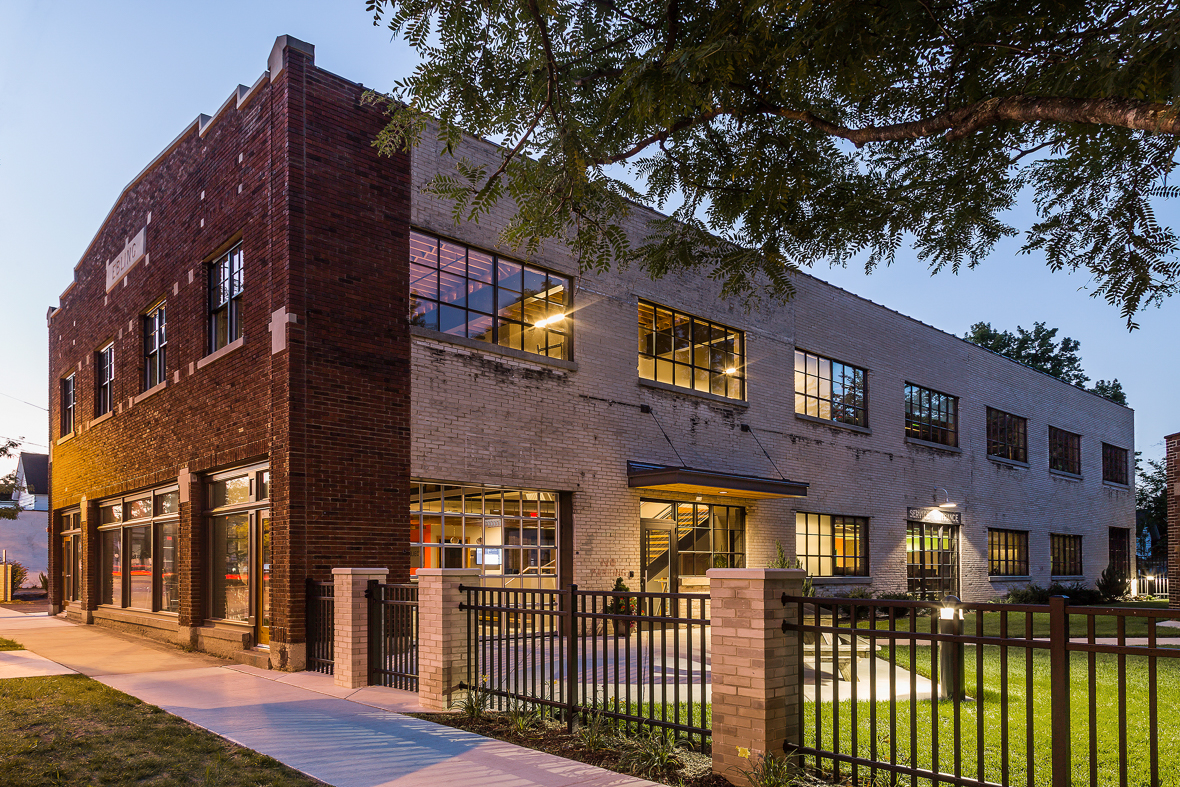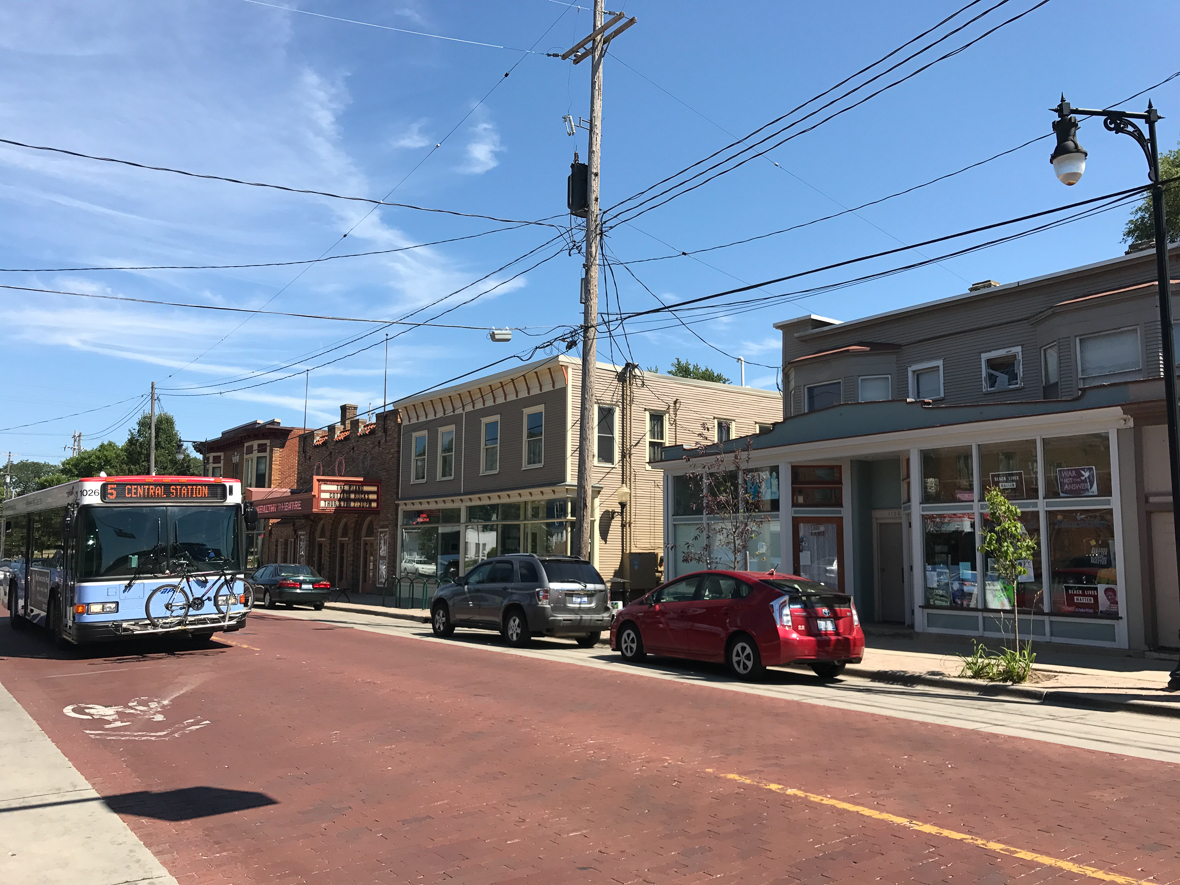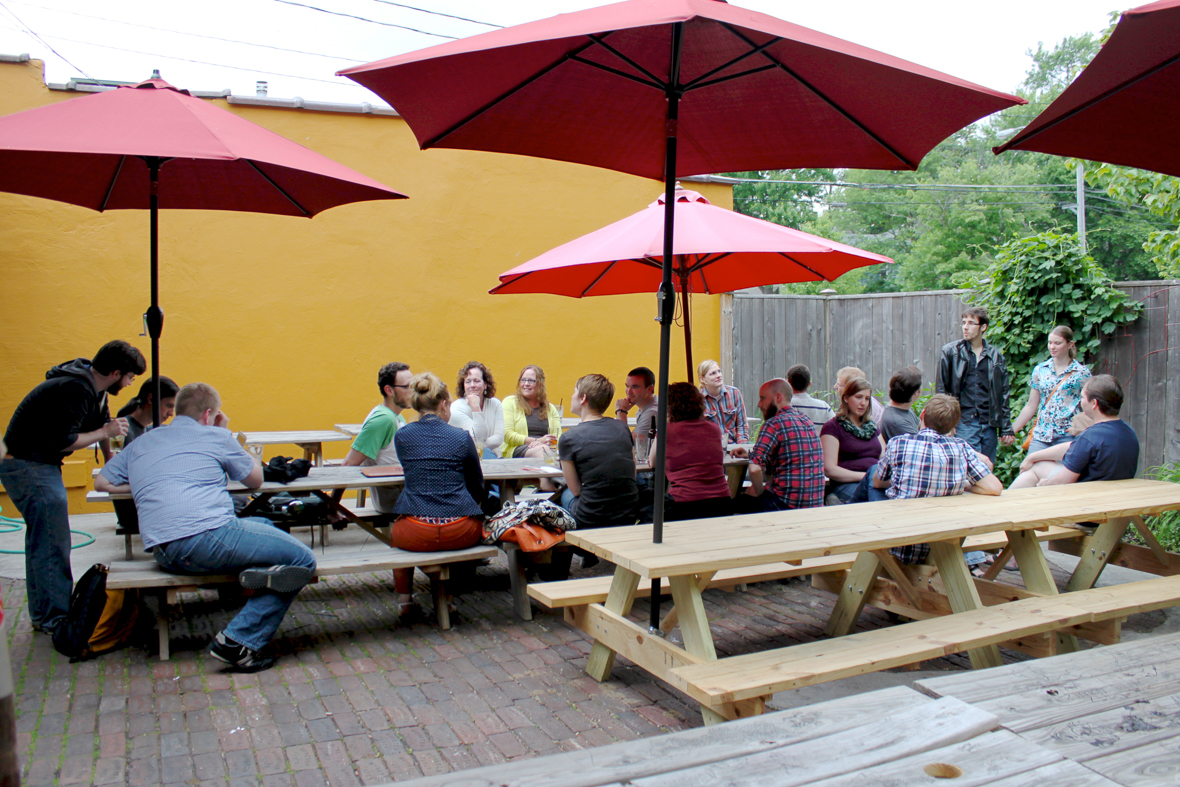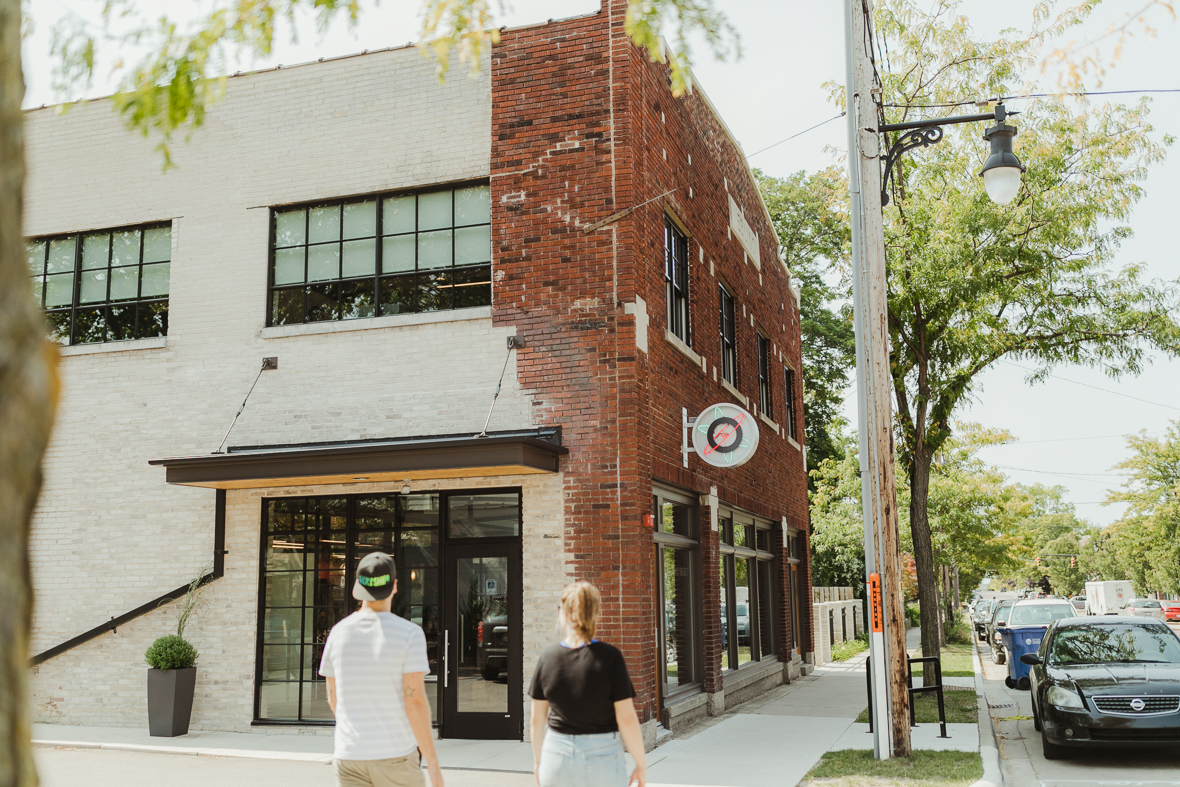
Atomic Object was recently named to the Inner City 100, a list of America’s fastest-growing companies with headquarters in older urban neighborhoods. It’s an annual recognition from the Initiative for a Competitive Inner City, featured in Fortune Magazine.
I sat down with Atomic CEO Carl Erickson to talk about why Atomic keeps choosing Wealthy Street, and what Atomic and the neighborhood have to offer each other.
All three of Atomic’s Grand Rapids offices have been on Wealthy Street in the Uptown/Baxter neighborhood. Why?
It’s not a suburb with no soul, and not downtown in a big, anonymous building. We’re in the sweet spot—a place with soul, with amenities.
Urban business districts like this are human-scale, places where the things around you don’t dwarf you. You can get outside easily, see other people when you look out the window—and sunlight and nice views. You can get around with a mix of walking, biking, and driving, not just with highways and huge surface streets. It connects you with other people.
Our office isn’t just the physical building we’re in. The neighborhood—literally the streets, the shops and restaurants—is an extension of our workspace. We don’t have a cafeteria; we have Brick Road Pizza. We don’t have our own bar; we have The Meanwhile. We didn’t have great coffee, really; we have The Sparrows. The surrounding neighborhood is a critical part of our physical place.

In 2016, Atomic spent $2.8 million to turn 1034 Wealthy into its new Grand Rapids office. Did you think about moving out of the neighborhood?
Only briefly; we could could get a lot more space for our dollar out in the suburbs. But that’s not all that matters to us. And when we polled the office, we got a very strong response in favor of staying in the area.
If you plunk yourself out in the suburbs, you can’t walk to anything. There’s no there there. It would be a drastically different work experience, and I think it would take away part of what makes Atomic special, because it would cut us off from being a part of a community.
Being where we are is so important that we spent a year and a half looking for another place in the neighborhood before 1034 Wealthy went on the market. It certainly wasn’t the least number of dollars per square foot that we could have spent. But there’s real value in having an office that’s right-sized and full of natural daylight. That’s in a place people feel connected to. A place that’s beautiful.
Our only asset is the smart people who choose to be part of Atomic. And they want to work in an environment where they can feel like they belong, where they can participate in the neighborhood. Atoms really enjoy that. It helps us recruit great people who care about the same things we do.
And practically speaking, 40-odd people had made a decision about where to live partially based on their commute to this neighborhood.

How has the neighborhood changed since Atomic opened its doors in 2001?
Back then, it wasn’t clear that Wealthy would be what it is today. But it was clear to me that it could be. And that we could contribute by renovating a building and bringing good-paying jobs and people who care and are engaged with the neighborhood. It was a leap of faith.
2001 was right when the street started to turn around. I give credit to the State of Michigan’s Renaissance Zone program, which gave certain areas 15 years without property tax. Wealthy Street was the first Renaissance Zone in Grand Rapids.
That program was the catalyst, and then the revitalization hit critical mass and started to feed on itself. I think Grand Rapids exemplifies a trend of people wanting to be back in the urban center. Now it’s an up-and-coming neighborhood, a historically-vibrant commercial district that is becoming vibrant again.
Are there downsides to being in a neighborhood like this?
Parking is definitely a challenge, but that’s really about it.
One thing I see as an upside—which many people may not—is the large variety in our neighbors. I recently heard a great talk from Bryan Stevenson of the Equal Justice Initiative. He talked about how if you’re not proximate to people, you’re much more likely to misunderstand them, to fear them, maybe even to hate them, but certainly not to connect with them as people.
When we first bought the building in 2003, I wasn’t sure if I would feel comfortable walking to work. And I laugh at that now because I’ve walked to work so many times, and I feel so connected to that neighborhood. On my way to and from work, I chat with owners of businesses, with neighbors black and white, with the kids who are hanging out on the street and love to pet my dogs.
I can’t even say I was making an effort. The magic of being proximate took hold, and suddenly I was much more comfortable, and I stopped even thinking about it.
I think it teaches you to be empathetic, which is something we absolutely rely on to make successful software. It helps you remember that software has a big impact on the world, and that everybody uses it, and we are not everybody.

How can a business be a good neighbor?
It starts with keeping your property in good shape, abiding by the City’s rules, that kind of thing. And making your space not just functional, but beautiful. By doing that, you make the neighborhood an attractive place for other people. That increases the likelihood that your neighborhood stays a place where people want to live and work, which reduces crime and creates stable economic potential for other people.
We’re intentional about spending our money as locally as possible—neighborhood restaurants and bars for sure, but also local suppliers and service providers. I think that’s the most obvious and direct impact. But we’ve also brought life to now two distinct buildings, both through renovation and also making commercial activity happen in them.
Most of the people we hire—the vast majority—need a four-year college degree to do the jobs they do. And we live in a neighborhood where university degrees are not common. It’s an under-represented population for higher education. So we host and support organizations that help our neighbors succeed, like HQ and The Midwest Tech Project.
Why should a business care about its local neighborhood?
If you want to look at it selfishly, it’s because these connections have a lot of tangible benefits. They can build your reputation and increase your network, which helps you find new clients. You can’t make these connections counting on the marketing, but your business will benefit in ways you can’t predict.
For example, in 2015, we needed a special land use variance to change 1034 Wealthy from a retail space to an office space. We had a good local reputation, and people saw where we spent our money and time. So when it came to ask for their support for the variance, we got an overwhelmingly positive response from all corners of the neighborhood—35 letters of support. It was very heartening to see we had a legit place here, and people recognized our contributions to the neighborhood. If the zoning said Atomic didn’t belong on Wealthy, the zoning wasn’t correct.
Ultimately, though, we care because having a sense of belonging and pride in your local place is a beautiful thing. There’s a lot to be gained personally from being connected to the humans we spend time on earth with. It’s the feeling that what you do matters, and that’s a great source of satisfaction.

